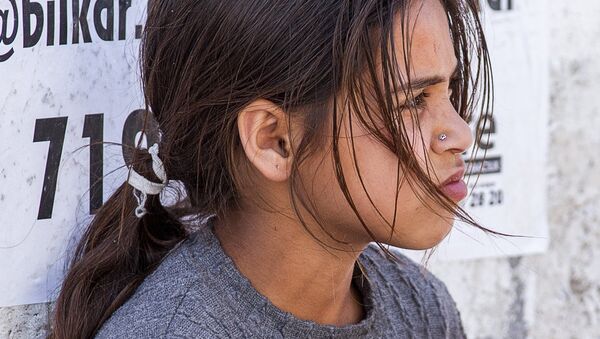The Dubs Amendment, passed by Lord Alf Dubs in April 2016, committed the government to taking in unaccompanied child refugees. Under international law, a child is defined as being younger than 18 years of age.
Tess Berry-Hart, Head of Advocacy of Calais Action, has led the campaign against what they call the government's attempt to ignore the most vulnerable people caught up in the conflict.
"We have asked that the government to amend the guidance and remove the age nationality restrictions. This is not in the Dubs Amendment, so why is it being enforced?" Tess Berry-Hart said.
The criticism will add to pressure on the Home Office after cross-party MPs raised an urgent question in parliament, calling on the government to explain the guidance.
The government has already taken in 300 children from Calais and 50 of them were from Eritrea, this has led to the question being raised as to why the Home Office have suddenly backtracked.
"They don't feel that they have backtracked as they never wanted to do this in the first place, they have been dragged kicking and screaming to fulfil their humanitarian obligations. Also, the 50 Eritreans that were brought to the UK from Calais were all females… So the government has justified this by saying that they are more at risk of being trafficked," Ms. Berry-Hart told Sputnik.
.@thomasbrake asked urgent question on why Gov are rolling back on promise to offer haven to most vulnerable unaccompanied refugee children
— Lib Dem Press Office (@LibDemPress) 16 November 2016
According to Ms. Berry-Hart, the government is going against the very laws they put in place, by essentially ignoring the Dubs Amendment.
"[The government] are going against their own laws, in terms of not applying them and there is no reason to single out any nationality as being more deserving or less deserving. The Home Office has fought tooth and nail on this. They feel justified, because nowhere in the Dubs agreement does it mention a maximum or minimum requirement for how many children should be brought into the UK," Ms Berry-Hart said.
. @AmberRudd_MP What are you thinking?! 12years old + #restarttherescue #nosafecountry #Iwelcome https://t.co/9ixREaDcda
— Maša Kepic (@masakepic) 16 November 2016
@calaisaction this is completely horrendous. Shames us all. @AmberRudd_MP time you redeemed yourself.
— Mary Margaret McCabe (@mmmccabe1) November 17, 2016
With the latest change and the introduction of these guidance regulations by the Home Office, charities do fear that these children will be left in dangerous and life-threatening situations.
"The ones who have arrived in the UK will be put into temporary foster care. This will impact these children a lot and there are lots of reasons why people would want to come here — [those] who don't have a family. The worry is they may run away and go back to the old ways of jumping on trains and lorries and that is the worry."
"All of them hoped their case would be considered, not that some would have their case considered. So for the Home Office now to assess them with these criteria is unfair," Ms. Berry-Hart told Sputnik.
The issue of accepting unaccompanied minors has been a longstanding one, however once the Dubs agreement was signed, it was thought the issue had been resolved. For campaigners however, the Home Office guidance is clearly going against the actual Amendment and the worry is that more children will be lost, trafficked or even killed due to the latest restrictions.



